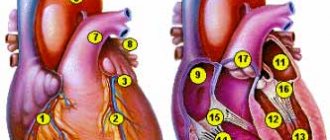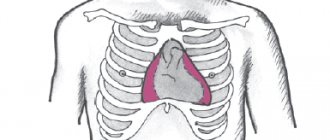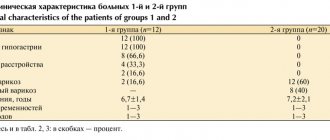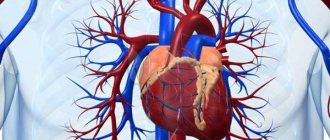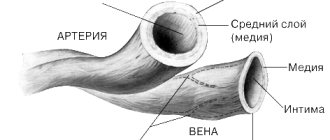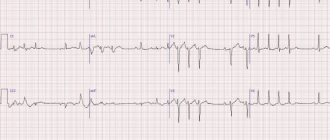Lymph is the living water of our body. The lymphatic system permeates a person completely and is responsible for one of the most important functions - cleansing and immunity. Without lymph, the body would turn into a fetid swamp. But, despite the fact that for the most part she copes well with her responsibilities herself, sometimes she still needs help. Because modern realities are such that the amount of rubbish entering the body significantly prevails over the cleansing capabilities of lymph.
The structure of the human lymphatic system
Since the lymphatic system is part of the vascular system, its structure is very similar. It consists of capillaries, nodes, vessels, trunks, ducts and intercellular fluid, which removes all dirt from the body.
Trunks, vessels and capillaries are a lymph network. It is a plexus of tubes that permeate almost the entire body. It is along them that the very living water moves.
Nodes are formations that are the primary filter. They cleanse the body of dangerous pathogens - a kind of sump.
Ducts are places where the lymph system connects to the circulatory system.
Lymph is a liquid that constantly moves through the trunks, vessels and capillaries.
Lymphoma and lymphedema
Thomas Hodgkin in 1832 described a form of lymphoma now known as Hodgkin's lymphoma (lymphogranulomatosis).
Photo from wikipedia.org You've probably heard about lymphoma. This is a malignant disease that begins in the lymphatic system. There are Hodgkin's lymphoma (it is associated with specific white blood cells, Reed-Sternberg) and non-Hodgkin's lymphoma.
As is often the case with cancer, the prognosis depends on the individual patient and the stage at which the disease is detected. Nowadays, young people are often completely cured of lymphoma.
A lesser-known condition is lymphedema, which occurs when the lymphatic system is disrupted, for example, if for some reason it stops draining fluid.
A sign of lymphedema is dense swelling of one or more limbs that does not form a pit when pressed. In some cases, the fluid may even leak through the skin.
The disease is successfully treated, however, as a rule, it does not go away completely, and the patient has to resort to therapeutic intervention regularly.
Organs of the human lymphatic system
The main organs of the lymphatic system are the bone marrow and thymus. Secondary - spleen, tonsils, appendix, Peyer's patches, lymph nodes. The main function of these organs is the formation of immune cells in the body.
The spleen monitors the condition of the blood, removes all dead cells and antigens (compounds dangerous to the body) from it.
Secondary organs are connected to other tissues and lymphocytes (such cells) move between them. They pass from the blood to the lymph nodes, spleen and other tissues, and then return back to the blood through the tubes of the lymphatic system. Lymphocytes are formed in the bone marrow, and are also divided in the thymus.
2. Why does lymph node enlargement occur?
Often, single lymph nodes become painful and swollen due to various injuries, infections, or tumors developing in or near the lymph nodes. Depending on which lymph nodes are inflamed and swollen, the cause of inflammation of the lymph nodes
:
- Swollen lymph nodes in the neck, under the jaw, or behind the ears
usually occur due to a cold or sore throat. Enlarged cervical lymph nodes can occur after injury - a cut or bite near the gland, or due to swelling and infection of the mouth, head and neck; - Inflammation of the lymph nodes under the arm
(axillary lymph nodes) occurs due to injury or infection of the arm. In rare cases, the lymph node under the arm becomes enlarged due to breast cancer or lymphoma; - Lymph nodes in the groin
become inflamed, painful, and enlarged from injury or infection of the leg, groin area, or genitals. In rare cases, the cause of inflammation of the lymph nodes in the groin is testicular cancer, lymphoma or melanoma; - Inflammation of the lymph nodes above the collarbone
(supraclavicular lymph nodes) can occur due to an infection or tumor in the lungs, chest, neck, or abdomen.
Visit our Therapy page
Composition of lymph
Lymph is very rich in composition. It contains:
- a huge number of lymphocytes;
- red blood cells, which in normal times are not contained in very large quantities, but during injuries they multiply rapidly. If you look at your wound, which begins to slowly heal, you will see a thin film - it appeared thanks to this reproduction;
- granulocytes - activated during infectious infections;
- proteins, lipids, amino acids, glycerin, glucose, electrolytes and other compounds - their quantity depends on how much water you drink. For lymph to work properly, the body needs a normal and regular supply of moisture;
- Lipoproteins - in common parlance these are cholesterol and phospholipids. Their quantity depends on nutrition. The better you eat, the fewer of them there are.
3. Diseases leading to inflammation of the lymph nodes
If the lymph nodes become inflamed and enlarged in more than one area of the body, it is called generalized lymphadenopathy.
This inflammation of the lymph nodes is caused by:
- Viral diseases such as measles, rubella, chickenpox or mumps;
- Mononucleosis, the symptoms of which are fever, sore throat, fatigue, as well as the viral infection cytomegalovirus that causes similar symptoms;
- Bacterial diseases such as strep throat (caused by streptococcus bacteria) or Lyme disease (a bacterial infection spread by certain types of ticks);
- Side effects from taking phenytoin, a medicine used to prevent seizures;
- Side effects from the measles-mumps-rubella vaccine;
- Cancer - leukemia, Hodgkin's disease and lymphoma;
- AIDS, acquired immunodeficiency syndrome;
- Syphilis is a sexually transmitted disease.
About our clinic Chistye Prudy metro station Medintercom page!
How does the human lymphatic system work?
Every day, through air and food, “enemies” enter our body - toxic substances, bacteria, viruses and infections. In addition, cells are constantly renewed. And so that all this unpleasant bouquet does not accumulate inside, there is a lymphatic system that removes everything. But cleansing is not the only function of the lymphatic system.
It also helps protect the body by producing immune cells, which determine how a particular virus will affect us and how long we will be sick if damage to our health is caused.
Humoral function once again proves that our body works as a coherent integral mechanism, where one thing depends on the other. It is responsible for transmitting impulses that tell what substances need to be synthesized for proper functioning.
The lymphatic system also transports nutrients. Delivery of lipids and albumin molecules into the blood. On average, every day about 100 grams of protein enters the blood from lymph, without which the body cannot function normally.
Excess fluid is removed from the body with lymph. This function is called drainage and, if it is disrupted, swelling may appear, sometimes so severe that it interferes with movement.
The structure of primary lymphoid organs
Let us dwell in more detail on the structure of the primary lymphoid organs.
Red bone marrow Red bone marrow in an adult is found in flat bones (pelvic bones, sternum, scapula, ribs, vertebrae) and in the expanded ends of long bones (for example, femur). It contains the stem cells from which all blood cells are formed, including the precursors of T and B lymphocytes. The bone marrow is located in the form of cylindrical cords around the blood vessels. Maturing blood cells and lymphocytes penetrate their wall and enter the bloodstream.
In newborns, red bone marrow occupies all bone marrow cavities. After 4–5 years, in the middle sections of the long bones it gradually begins to be replaced by yellow bone marrow, which is a fat depot. This process is completed by age 20.
Thymus The thymus , or thymus gland, is located behind the sternum. Consists of 2 elongated lobes fused in the middle part. Along with the formation of lymphocytes, the thymus produces hormones that contribute to the formation of immunity. This organ reaches its greatest development during puberty: at 14–15 years of age, its weight is 30–40 g. Subsequently, fatty degeneration of the thymus occurs. By the age of 70, his weight decreases to 6 g.
Lymph cleansing points
Cleansing usually occurs through the excretory and digestive systems. But sometimes they fail and the body begins to use other organs.
Vagina in women and urethra in men
Some dangerous microorganism entered the body, the lymphatic system quickly dealt with it and begins to get rid of the “corpses” of these bacteria. In women, this is usually accompanied by copious vaginal discharge (in severe cases, itching may occur); in men, the discharge is accompanied by pain when urinating.
What do people usually do in this case? Without dealing with the problem, they swallow pills. But this does not help solve the root cause, but only removes the effect. The tablets extinguish the body’s ability to cleanse itself, but it does not save you from dangerous microorganisms - they hide in other organs and cause harm there. In addition, the pills have a strong effect on the liver and ultimately only harm us.
It is necessary to fight not with the discharge, but with what caused it.
Gastrointestinal tract
The gastrointestinal tract is penetrated by many lymph nodes, so it is also involved in cleansing. The intestines not only release leftover food, but also poison that somehow got inside us.
Various disorders, pain, flatulence are the result of the fight between the lymphatic system and bacteria. If all this bothers you quite often, take care of your immunity urgently!
Sweat glands
Various poisons, toxins and hormones are released through sweat. And the main concentration of this power is the armpits. And instead of letting them work normally, we use deodorants. As a result, not finding a way out, the lymph drives all the dirt further and ends up in the chest. And this is where mastopathy occurs.
If you absolutely cannot do without deodorant (this is logical, no one wants to smell bad), then at least stop using them 24/7. And replace it with organic options. For example, mineral deodorant from Beauty 365. It does not block the work of the sweat glands, but gently regulates it.
If possible, shower and wash off cosmetics more often. You should sweat - it's normal!
Nose
The nose is one of the main filters. It cleans the inhaled air from dust and bacteria. Excessive mucus production may not be a symptom of a cold, but only a protective reaction of the body. In this case, you should not treat the snot, but you need to find out the reason why it appeared.
Tonsils
Previously, tonsils (and adenoids too) were considered unnecessary organs and doctors calmly cut them out. But it's not right! They are an important part of the lymphatic system. This is where the fight between viruses and lymphocytes occurs, and immune cells are released.
If the functioning of the tonsils is disrupted, then the person is constantly sick, and the tonsils become inflamed. We start treating them with antibiotics, but they either fail or their effect wears off quickly. As a result, they are removed, but the problem does not go away. Viruses go further, capturing the trachea, larynx, bronchi and lungs. Before removing inflamed tonsils or adenoids, try to cleanse the lymphatic system. This should help.
Airways
When the mucous membranes of the nasal cavity are unable to cope with the infection, it can pass on. Laryngitis occurs in the larynx. If it was not possible to cope with the virus there, then it goes further and can cause tracheitis, bronchitis and, at the end of its journey, even pneumonia.
How to preserve the lymphatic system: prevention of pathologies
If the lymphatic system is overloaded or clogged, then health problems are sure to appear. Try to minimize negative influence from the outside - don’t miss anything that can cause harm. At a minimum, you can start with proper nutrition. Be sure to include foods that stimulate intestinal function in your diet.
Lymphatic drainage massage is a wonderful technique that allows you to disperse stagnant fluid, which means it improves the removal of toxins.
Special exercises and breathing exercises also help cleanse the lymph nodes and ducts.
A sedentary lifestyle harms all organs, but the lymph suffers first. Have you been sitting at work for a long time? Get up and walk around the office, do some light exercises. Try to walk outdoors every day.
Lymph nodes are very sensitive to temperature changes. Avoid hypothermia or overheating - they can lead to inflammation.
And, of course, avoid stress! Depressive states cause the release of a hormone that slows down all processes and leads to spasms. Sleep at least 7-8 hours, meditate, take vitamins and smile more often.
Inner Britain: what should healthy lymph flow look like?
The lymphatic system does not have a heart. The movement of lymph is created not by a powerful pump, but by a thin, delicate, vulnerable valve system. Its work depends on the fluidity of lymph, vascular tone, tissue turgor, blood pressure, temperature, degree of dehydration... And our health and well-being also largely depend on the lymph itself. Let's figure out what lymph likes, what it doesn't like, how it moves and how we can take care of it.
Lymph is a clear or slightly yellowish liquid substance with a slightly alkaline reaction. It includes:
- lymphocytes,
- single red blood cells,
- protein compounds,
- lipids,
- glucose,
- cholesterol,
- phospholipids,
- and also fat-soluble toxins, cellular breakdown products and pathogens that the lymph has removed from the tissues.
All this is contained in the lymph in one concentration or another, but the main carrier component is the universal natural solvent - water. Water balance for lymph is extremely important, because its volume in the human body is 5 times greater than the volume of blood.
If there is not enough water, the concentration of protein compounds in the lymph increases. Normally, the speed of lymph flow is 0.5-0.8 cm/sec, but if the lymph becomes thicker, it flows slower, and this threatens stagnation.
One of the signs of an existing lymph flow disorder is cellulite . The loose, uneven structure of subcutaneous fat tissue indicates not so much the deposition of fat, but rather the fact that the lymph cannot cope with the removal of toxins and “hides” them in fats, where they can be stored for years. And with sudden weight loss, it comes out, enters the bloodstream and causes disease.
Also, a problem with the lymphatic system is indicated by swelling and depressed red stripes from the bed in the morning. When the body has enough fluid, the turgor (elasticity) of the tissues is normal, and the excretory systems (in particular, the kidneys) are in order, such symptoms are absent.
What slows down lymph?
- Drinking alcohol, coffee, soda
- Smoking
- Unhealthy and difficult to digest food
- Lack of clean water
- Excess salt and sugar in the diet
- Wearing tight, tight clothing or high-heeled shoes
- Taking medications
- Physical inactivity
What speeds up lymph?
- Drinking clean water
- Normalization of diet
- Rejection of bad habits
- Lymphatic drainage massages
- Exercises for the lymphatic system
- Competent herbal medicine
The movement of lymph should not be too slow, but it should not be too fast either. Lymph needs time to wash every cell. She is not a sprinter, but a tireless slow mover who slowly collects garbage and carries it away so that the tissues can function safely.
useful for the lymphatic system to carry out unloading from time to time first of all, food. During these periods, you should give up complex culinary delights to help yourself.
An important note for those who are looking for a way to effectively cleanse the lymphatic system. The lymphatic system is itself a means of cleansing. It does not need total cleansing, and it is impossible to free it 100% of toxins, because a number of toxins are produced and released by our own cells. Naturally.
But mild detoxifications are acceptable and beneficial. Those who want to do this competently are recommended to take a short series of “Dietetics Light” lessons from immunodietologist™, nutritionist with 30 years of experience, Marina Nikolaevna Vnukova. This will help you prepare properly, personalize your cleansing regimen, and avoid worsening your condition due to improper, abrupt detoxification of the body.
Lymph formation: what is it and how does it happen?
Oxygen and other nutrients are supplied to tissues and organs through the blood. But they need to be cleansed so as not to clog the body. So, through the walls of the capillaries, filtration occurs into the intercellular space, where a special tissue fluid is formed. But it not only cleanses the blood, but also additionally nourishes it with necessary elements.
This fluid then enters the lymphatic vessels, where it is saturated with lymphocytes and turns into lymph. All lymph moves in one direction - towards the heart.
Why do we need lymph nodes? What happens if the lymphatic system fails?
The tonsils became inflamed, the splinter caused suppuration of the finger - this is all the work of the lymphatic system. She is responsible for destroying and bringing out everything that can harm a person.
If the cleaning function fails, dirt may begin to come out through the skin. This is how various inflammations, acne, redness, and rashes form. In addition, there is additional pressure on the liver, intestines and kidneys. But that's not the worst thing.
With severe disorders, all toxins not only remain inside, but are carried through the blood throughout the body. And this is already fraught with serious consequences.
4.Treatment of lymph nodes
Treatment of swollen lymph nodes involves treating the cause of their enlargement, swelling and pain. For example, a bacterial infection is usually treated with antibiotics, but a viral infection often goes away on its own. A more serious case is cancer. If there is reason to suspect that enlarged lymph nodes are associated with oncology, a biopsy may be performed and, of course, a full examination by a good doctor is necessary.
In any case, if the enlarged lymph nodes do not go away in about a month and their size does not decrease, you should consult a doctor. In general, lymph nodes may remain swollen long after the infection has passed. This is especially common in children.
How to cleanse the lymphatic system? Truth and fiction
To get rid of excess liquid and remove all toxins, mechanical cleaning is necessary. Everything is safe and very easy. The best remedy is licorice. It must be taken together with enterosgel or activated carbon.
Licorice liquefies the lymph, which speeds up the removal of toxins. And activated carbon prevents them from being absorbed back into the cell.
In addition, licorice has a whole complex of essential oils and vitamins that provide an anti-inflammatory effect.
This cleaning is carried out over two weeks. And if you regularly do drainage massage and gymnastics, the effect will become most noticeable.
Lymphatic drainage massage
Drybrushing is a massage with a dry brush. It not only saves from cellulite, but also disperses lymph, removes swelling and improves blood circulation. Beauty 365 has a good brush.
Vacuum massage with miracle cans is also very good - swelling goes away, intercellular fluid accelerates and waste and toxins are eliminated faster. Choose what you like best.
Healthy foods for lymph
- Walnuts - thanks to phytoncide, protective properties increase.
- Carrots - beta-carotene, which is contained in huge quantities in this vegetable, slows down aging, helps produce antibodies and prevents lymphocytes from being destroyed.
- Sea kale - iodine also increases the protective properties of lymph.
- Eggs - they contain lutein, which is involved in the formation of building material for our cells.
- Fatty fish - the right fats make blood vessels healthy and elastic.
And now a little about those foods whose consumption should be limited:
- Alcohol causes vasospasm, and it disrupts the movement of fluid through the vessels.
- Salt – large amounts of salt cause hypertension.
- Canned food, sausages and other semi-finished products are food waste for humans. They cause clogging of our internal filters, which provokes the formation of stagnation and swelling.
